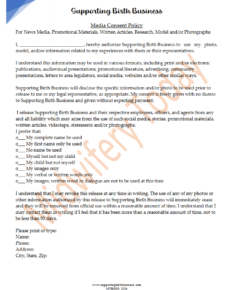
Newborn Care in the Context of a Developing Country
In my first and second articles in this series, I mentioned that in Thailand, they have an expression that translates in English to “same same but different.” As is true with pregnancy and labor and delivery, so it is true of caring for the newborn, as well. There are unique aspects to newborn care in a low-resource setting and, while many elements of caring for a newborn baby in the six weeks following birth are universal, the midwife needs to be aware of how best practices can be different according to the setting. The International Confederation of Midwives (ICM) has created global standards, competencies, and guidelines to ensure that midwives in all countries have effective education and skills (ICM 2018). When working in developing countries where newborn mortality is high in the neonatal period, the midwife should possess advanced skills and be humble about the high-risk population in which she may find herself. Business as usual will not be adequate or even ethical in these situations.

 Vicki Penwell is known by many titles—midwife, educator, nonprofit founder and director, student, mother, Lola, and her least favorite: new widow. She divides her time between living in the Philippines and the USA while training midwives through the Mercy In Action College of Midwifery, the Mercy In Action Diploma in International Midwifery & Maternal/Child Health, and numerous seminars and workshops, including a 10-Day Learn and Serve held annually at her home in the Philippines. Vicki has a Masters in Midwifery and a Masters in Intercultural Studies and is currently finishing her second year of a doctoral program in Creative Leadership.
Vicki Penwell is known by many titles—midwife, educator, nonprofit founder and director, student, mother, Lola, and her least favorite: new widow. She divides her time between living in the Philippines and the USA while training midwives through the Mercy In Action College of Midwifery, the Mercy In Action Diploma in International Midwifery & Maternal/Child Health, and numerous seminars and workshops, including a 10-Day Learn and Serve held annually at her home in the Philippines. Vicki has a Masters in Midwifery and a Masters in Intercultural Studies and is currently finishing her second year of a doctoral program in Creative Leadership.



















